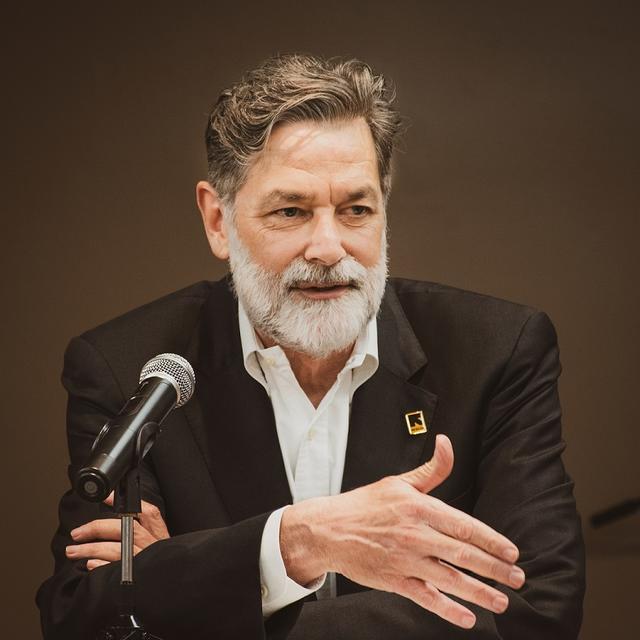This past Thursday, December 9th, the Poly community was involved in the UNA Human Rights day event. We heard from a total of 6 speakers, all of whom provided the audience with a deeply personal and unique experience.
Reyna Grande started off the event with her personal account of immigrating. Grande spoke of the interminable amount of borders she had to cross after her first border crossing into the United States. After she arrived in America, she was faced with legal, linguistic, cultural, and economic borders, all of which created a border around her and her identity- separating her from those around her. To conclude the sharing of her experience, Grande asserted that "border crossing is [her] superpower." She challenged us as Americans to create an environment free of the socially constructed borders we consciously and unconsciously maintain, welcoming immigrants and those in need with open arms.After Reyna Grande, the audience heard from Martin Zogg,- the Chair of the LA Refugee Forum and Executive Director of International Rescue Committee in Los Angeles- who asserted that we are in the middle of a humanitarian crisis. The lack of affordable housing, paired with the rapidity of Afghan refugees arriving in the United States is leading to a growing population of unhoused immigrants. Zogg and his IRC coworkers now receive cases with a mere 24-hour window, leaving them a day to find housing for arriving families of up to 14 people. In Los Angeles, it is incredibly difficult to find affordable, permanent housing for these large groups, which results in an added trauma for these individuals. After having to flee their homes, these people were placed in tents in army bases, told they were to be resettled, flown to Los Angeles, and met with a situation in which there is no housing available for them. Because of this, these immigrants must live in hotels in an unfamiliar country surrounded by an unfamiliar culture, coping with unimaginable trauma. This “invisible emergency” requires our attention. Zogg left us with a call to action. As students, he gave us three avenues to aid the situation. 1) Supply resettlement agencies with funding (funding = flexibility), 2) Volunteer- currently Mr. Zogg is working with a team of only 18 for all of LA’s IRC branch, 3) Advocate- we want to be a welcoming country.
The event concluded with a panel discussion in which non-profit organizations, PACTL, SCCM, and ARS explained the importance of their work and various ways in which audience members can provide support. Overall, the event was an incredibly significant one that left me with a raised awareness of the importance of understanding immigrant stories and struggles.

Comments
Post a Comment